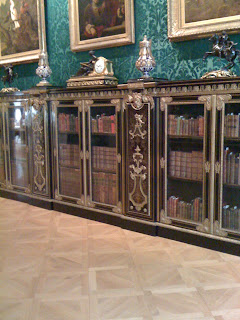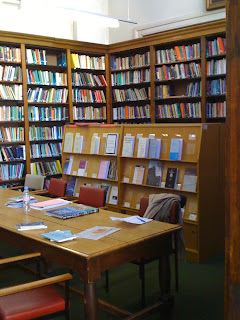On Finding Books on Via della Conciliazione

A Catholic book lover’s heaven, Via della Conciliazione is the street that leads directly up to the piazza and then St. Peter’s Basilica. The street, though relatively short (about four blocks) is filled with bookstores, souvenir shops, religious goods shops, and gelaterias (which very annoyingly close early in November). I am confessing that I am not a numismatic fanatic. Lorraine has numismatics that she needs to catalog and the Vatican Library has very nicely cataloged numismatics collection , so she did need to hang around for those sessions. So, I decided to ditch the long session on coins and head off to get some material for a blog post on books on the Via della Conciliazione . Lorraine and I stayed at the Hotel Columbus which is on the street at number 33, and from our side balcony we could see out to a tiny sliver of the street. St Peter's is, of course, at the end of Via della Conciliazione and the conference was held at number 5 in the Vatican School of Librar...


